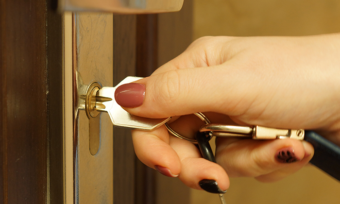Author: Alasdair Duncan
If you’ve ever been to an auction, you’ll know that the experience can be both exciting and tense. As a property goes under the hammer, rival buyers compete to present the highest bid, until just one of them is left.
And if you have your heart set on a particular home and you discover that it’s up for auction, you may wonder what you can do to prepare. So to help you get ready to bid, and improve your chances of snagging the property, here we run through some top tips to get you auction ready.

How to prepare for an auction
Whether you’re a first-time bidder, or whether you’ve been to a few auctions before and want to up your game and get that successful bid over the line, the eight key things to keep in mind when preparing for a property auction are:
- Shortlist several properties
- Monitor recent sales right up until auction day
- Compare properties with similar features
- Set a cut-off range, rather than a cut-off price
- Attend open homes and auctions to understand market demand
- Follow trend reports by property professionals
- Consider placing a strong opening bid
- Consider placing smaller or odd-numbered bids
1. Shortlist several properties
By nature, auctions are fast-paced and can be emotionally driven. But to minimise getting swept up in the action and paying more than you initially planned, have a shortlist of several properties to fall back on. Rather than just one. By not having all your eggs in one basket, you’re less likely to make a regretful over-purchase.
You’re also less likely to start house hunting again from scratch.
2. Monitor recent sales right up until auction day
Looking at comparable sales – the recent selling prices of similar properties in the area – will give you a strong indication of the market value of a property.
Furthermore, while many buyers are still taking the traditional approach of using the last three to six months of sales, this may not be an accurate method in a cooling market. In fact, it may give results that are between 3% to 10% above the correct market price.
To ensure you have a realistic price guide on the day, continue researching right up until the auction. This might include calling agents to get a guide on a recent sale or one under offer.
3. Compare properties with similar features
In doing your due diligence to understand market value, look into the specific details and features of a similar home.
Ask yourself: are you comparing a property that might be flood-prone to another property in a suburb that might not be affected by the same problem? Similarly, if the property you’re looking to buy has a pool, or bus stop in front of it, ensure you compare properties with similar features as part of your research.
4. Set a cut-off range, rather than a cut-off price
As part of your prep work and strategy ahead of auction day, determine a cut-off price range that you’re willing to pay. Rather than a specific maximum price.
The bottom of this range is fair value, a price that is realistic for the property. While the top of the range is your absolute non-negotiable.
Think about this top price in your range as a reality check. If you pay anything above this, you will think it is overvalued and a purchase you will regret. By doing so, you have some wiggle room for how much you’re willing to pay.
5. Attend open homes and auctions to understand market demand
To better understand how many bidders you might be up against at an auction, visit open homes for private properties and attend auctions in the neighbourhood. This can help you to get an idea of how much interest there is in the area. And you’ll be better prepared and less surprised at the auction you plan to bid at.
6. Follow trend reports produced by property professionals
Research from places such as CoreLogic provides an overview and analysis of the property market, along with recent trends on performance in various areas, suburbs and, sometimes, even streets.
When doing your research, the key thing to look at is the guide on what a property might sell for based on this research, compared with what it ends up selling for on the day. The percentage difference can provide you with a better price guide and ensure you aren’t blindsided by the realistic sales price on auction day.
7. Consider placing a strong opening bid
Making yourself known with a strong opening bid can dishearten your competition and wipe them out early on.
Too many bidders at the start of an auction can bring out people’s competitive spirits and see high bids placed too quickly, and this strategy can curb that. If you’re thinking of a starting bid and you’re willing to go up to say $1.5 million on a property – and based on your research, you think this could be the end price – consider making an opening bid of $1.25 million-plus to scare off competition.
You’ll likely wipe out two-thirds of bidders who didn’t do their homework well.
8. Consider placing smaller or odd-numbered bids
If you’re starting to near your end price (say, from $50k to $200k out from your limit), placing smaller or odd-numbered bids may be a potential strategy to slow down and reduce auction heat so bids don’t reach a price too quickly.
When the bidding starts to get closer to your cut-off range, consider bidding in $1000, $5000 or $10,000 increments, or use odd numbers. This can force the auctioneer and bidders to slow down and rethink the bid due to unexpected numbers.
A pause can remove the heat and intensity and can mean the price won’t rise as quickly.

About the reviewer of this page
This report was reviewed by Canstar Content Producer, Andrew Broadley. Andrew is an experienced writer with a wide range of industry experience. Starting out, he cut his teeth working as a writer for print and online magazines, and he has worked in both journalism and editorial roles. His content has covered lifestyle and culture, marketing and, more recently, finance for Canstar.
Enjoy reading this article?
You can like us on Facebook and get social, or sign up to receive more news like this straight to your inbox.
By subscribing you agree to the Canstar Privacy Policy




Share this article